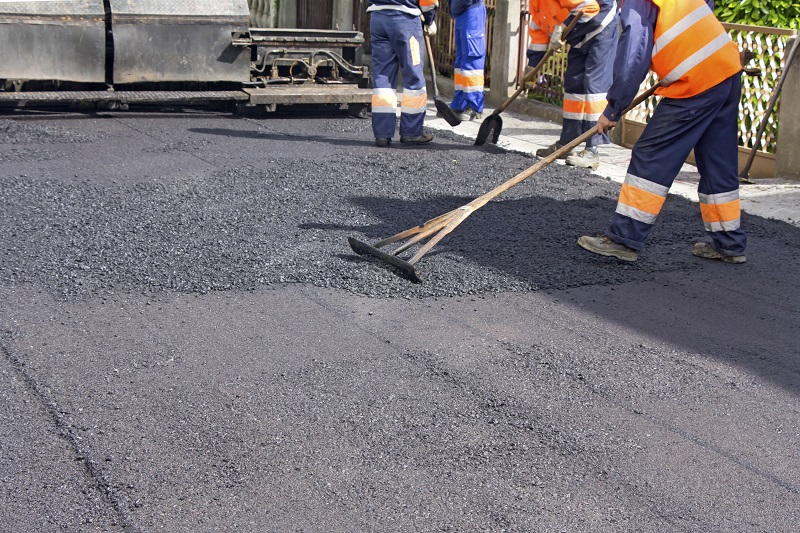Warm Mix Asphalt: Redefining Road Construction Specifications
Warm Mix Asphalt (HMA) is considerably modifying the landscape of road construction techniques, setting new efficiency benchmarks and improving market criteria. The ramifications of HMA in redefining road construction criteria are profound, offering a compelling instance for a closer exam of its transformative abilities in contemporary design methods.
Benefits of Warm Mix Asphalt
Hot Mix Asphalt (HMA) provides many benefits that make it the preferred choice for leading roadways. One of the key benefits of HMA is its capability to stand up to hefty website traffic loads and extreme climate problems, guaranteeing resilient efficiency.
Furthermore, the smooth surface area coating of HMA reduces rolling resistance, improving fuel effectiveness for automobiles and reducing general transportation costs. The quick construction time related to HMA projects even more improves its cost-effectiveness by decreasing labor and website traffic disturbance expenditures - Hot Mix Asphalt. In addition, the recyclability of HMA products makes it an eco lasting option for road construction projects.
Long Life and Durability of HMA
With a tried and tested track record of standing up to hefty website traffic tons and harsh weather condition problems, Hot Mix Asphalt (HMA) stands out for its exceptional long life and longevity in road building and construction projects. By supplying a smooth and stable riding surface for vehicle drivers, HMA reduces wear and tear on automobiles and boosts overall road safety and security.

Environmental Benefits of HMA
Significantly, road construction projects are transforming to Hot Mix Asphalt (HMA) for its substantial ecological advantages. HMA is a sustainable paving product that supplies numerous benefits in terms of ecological effect.
In addition, HMA sidewalks are recognized for their capacity to mitigate stormwater runoff. The smooth surface area of HMA roadways enables rainwater to move efficiently right into the ground, minimizing disintegration and reducing the risk of flooding. This can have a favorable influence on the surrounding ecological communities by keeping natural water flow patterns and maintaining the high quality of water bodies.
HMA in Road Construction Projects

Roadway building jobs profit from HMA's fast construction time, enabling for faster conclusion of roadways and minimizing website traffic interruptions. Generally, including HMA into road building jobs leads to resilient, cost-efficient, and eco-friendly streets that satisfy the needs of modern-day transport systems.
Influence of HMA on Infrastructure
The comprehensive use of Hot Mix Asphalt (HMA) in roadway building and construction tasks dramatically affects the general facilities top quality and long life. HMA gives a sturdy and smooth driving surface area that improves road safety and security by lowering crashes and reducing automobile deterioration. This, in turn, leads to decrease maintenance prices for both automobiles and the road itself. Additionally, HMA's adaptability enables it to adapt to differing weather condition conditions, protecting against fractures and holes that can endanger the structural integrity of roadways.
Additionally, making use of HMA in facilities tasks adds to ecological sustainability. HMA is a recyclable product, which suggests that old asphalt can be reused in brand-new road building and construction, reducing the requirement for virgin products and reducing waste. This not only preserves natural sources yet over at this website also reduces the carbon impact associated with road building and construction. Finally, the impact of HMA on facilities is extensive, advertising safer roads, cost-effectiveness, and environmental duty in roadway construction jobs.
Conclusion
To conclude, Warm Mix Asphalt (HMA) has actually proven to be a game-changer in road construction standards due to its exceptional effectiveness, longevity, and cost-effectiveness. With its capacity to withstand heavy website traffic lots and rough climate condition, HMA provides a trustworthy and resilient option go to these guys for facilities projects. Its smooth riding surface, resistance to fracturing, and ease of maintenance make it a top choice for enhancing road safety and security and minimizing ecological influence. HMA sets a new benchmark for lasting and high-quality facilities advancement.
With a tried and tested track record of withstanding hefty traffic tons and harsh weather condition conditions, Hot Mix Asphalt (HMA) stands out for its remarkable long life and sturdiness in roadway construction jobs.Utilizing Hot Mix Asphalt (HMA) in roadway construction jobs offers various benefits in terms of resilience and sustainability.Roadway building and construction jobs profit from HMA's quick building time, permitting for faster conclusion of roads and lessening website traffic disruptions.The substantial usage of Hot Mix Asphalt (HMA) in road building tasks significantly influences the general framework top click now quality and longevity. In final thought, the influence of HMA on framework is profound, promoting safer roads, cost-effectiveness, and environmental obligation in roadway building and construction tasks.